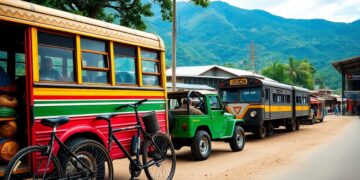Have you ever wondered what makes Quito, Ecuador, such a popular destination? Well, it’s not just the stunning landscapes and rich cultural heritage. You should know a few key things before you embark on your journey to this vibrant city. From the unique climate and altitude to ensuring your safety and security, there are important aspects to consider.
And let’s not forget about the local customs and etiquette, as well as navigating the local currency and money matters. So, to make the most of your visit to Quito, keep reading to uncover these essential tips to ensure a smooth and memorable trip. Here are some things to know before visiting Quito!
Things to Know Before Visiting Quito: Climate and Weather in Quito
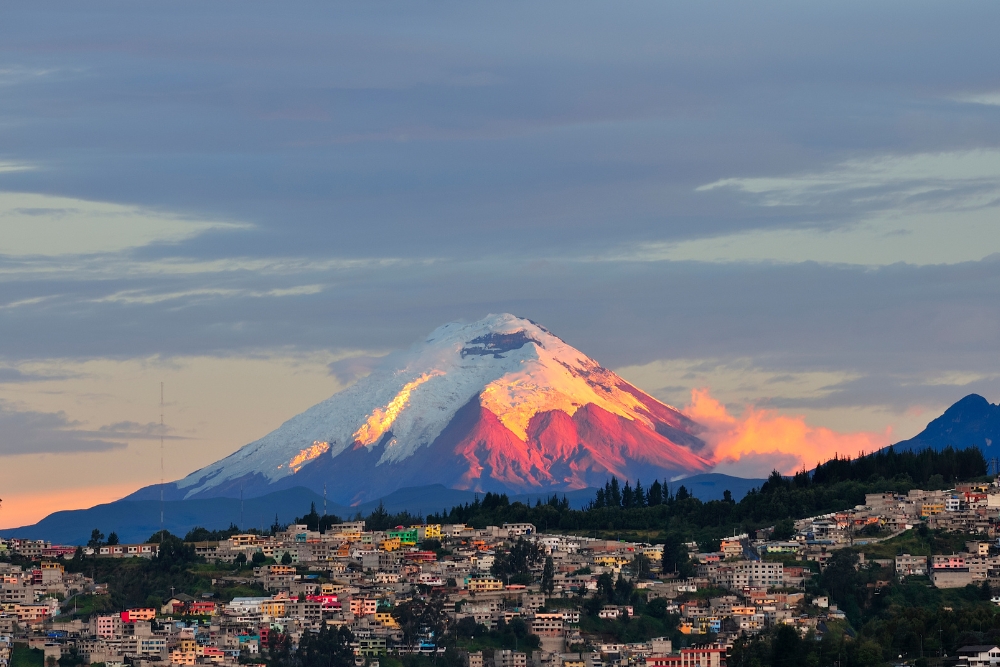
When planning your visit to Quito, Ecuador, it is important to familiarize yourself with its unique climate and weather conditions. Quito, situated high in the Andes Mountains, has a mild and temperate climate year-round due to its proximity to the equator. The average temperatures range from 50°F (10°C) to 70°F (21°C), making it a pleasant destination for travelers seeking comfortable weather.
However, it is essential to note that Quito experiences two distinct seasons: the dry and rainy seasons. The dry season, which spans from June to September, offers clear skies and warm days, perfect for exploring the city and its surrounding attractions. On the other hand, the rainy season, from October to May, brings frequent afternoon showers and occasional thunderstorms. It is advisable to pack a light raincoat or umbrella during this time.
Despite the rain, the rainy season also offers its own charm. The city’s lush vegetation blooms, creating a vibrant and picturesque landscape. The rainfall also contributes to the city’s fresh and crisp air, making it an ideal destination for nature enthusiasts and outdoor activities.
Things to Know Before Visiting Quito: Altitude and Acclimatization in Quito
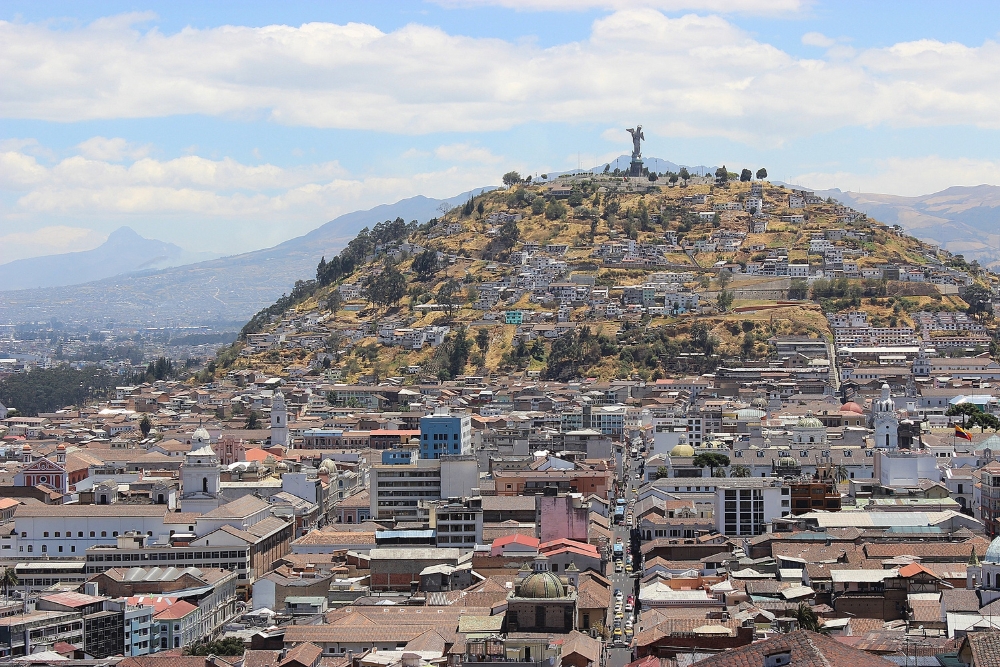
As you explore the climate and weather of Quito, Ecuador, it is crucial to understand the impact of its high altitude and the importance of acclimatization. Quito sits at an elevation of 2,850 meters (9,350 feet) above sea level, making it one of the highest capital cities in the world. The high altitude can affect your body, including decreased oxygen levels, increased heart rate, and potential altitude sickness.
To ensure a smooth and enjoyable visit to Quito, it is essential to follow some acclimatization tips. Firstly, take it slow upon arrival. Give yourself time to adjust to the high altitude before engaging in any strenuous activities. Avoid intense physical exertion for the first few days and allow your body to adapt gradually. Stay hydrated by drinking plenty of water and avoid alcohol and caffeine, as they can exacerbate the effects of altitude.
Eating light, nutritious meals and avoiding heavy, greasy foods is also recommended. This will help ease the burden on your digestive system, which can be affected by the altitude. Additionally, consider taking over-the-counter medications like acetazolamide to prevent altitude sickness.
Things to Know Before Visiting Quito: Safety and Security in Quito
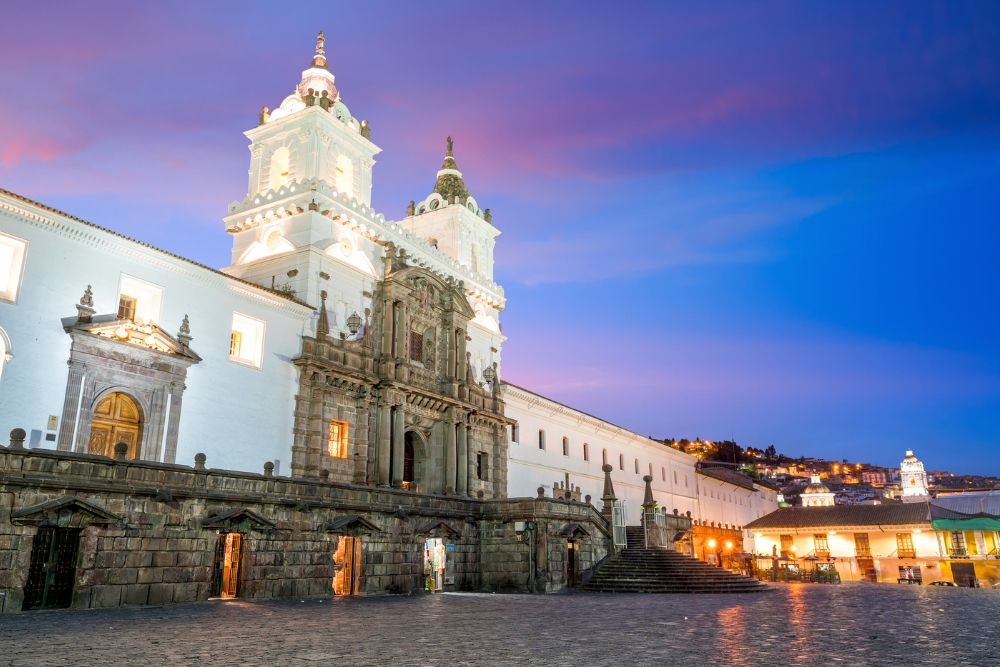
To ensure a safe and secure visit to Quito, Ecuador, it is important to know the local safety guidelines and take necessary precautions. Quito is generally a safe city for tourists, but like any other major city, it is important to stay vigilant and take steps to ensure your safety.
One of the key factors in maintaining safety in Quito is community engagement. The locals are friendly and welcoming, but it is still advisable to stay in well-populated areas, especially at night. Avoid walking alone in dimly lit streets and be cautious of your surroundings. Engaging with the local community can also provide valuable insights and tips on staying safe in the city.
In terms of transportation options, it is recommended to use registered taxis or ride-sharing services like Uber. These options provide a safer and more reliable alternative to public transportation. Always ensure that the driver uses the meter or agrees on a fare before starting the journey. It is also advisable to avoid hailing taxis on the street and instead use taxi stands or ask your accommodation to arrange a taxi for you.
Things to Know Before Visiting Quito: Language and Communication in Quito
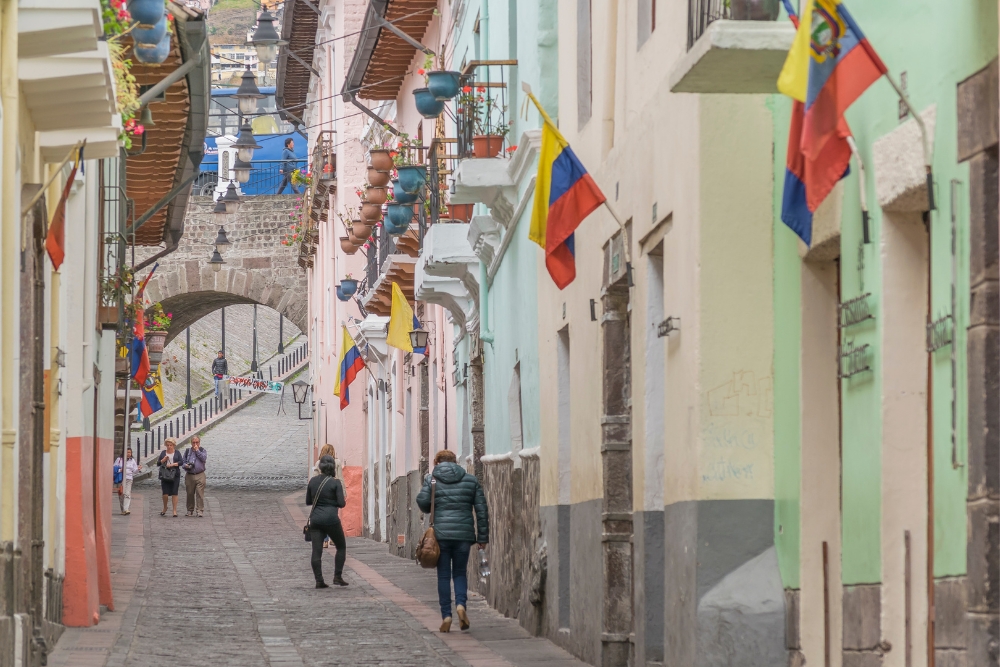
Navigating language and communication in Quito, Ecuador, can be an enriching experience, as Spanish is the official language spoken by the majority of the population. The city’s cultural diversity is reflected in the various accents and dialects you may encounter, making each conversation unique. As you explore the vibrant streets of Quito, you’ll find that Spanish is widely spoken, making it relatively easy to communicate with locals. However, learning a few basic phrases before your trip is always a good idea to show respect for the local culture.
Regarding transportation options, language can play a crucial role in ensuring a smooth journey. While many taxi drivers in Quito may not speak English fluently, they are generally familiar with basic directions and landmarks. Having your destination written down or using a translation app to communicate with the driver can be helpful. Additionally, public transportation in Quito, such as buses and the metro system, often have signs and announcements in both Spanish and English, making it easier for visitors to navigate the city.
Things to Know Before Visiting Quito: Currency and Money Matters in Quito

When managing your finances during your visit to Quito, Ecuador, understanding the local currency and money matters is essential. The official currency in Ecuador is the US dollar, so there is no need to worry about foreign exchange. This makes it convenient for travelers from countries that use the dollar as their currency. However, carrying small bills and coins is advisable, as it can be difficult to get change for larger denominations in certain places.
Regarding tipping customs, it is customary to tip around 10% in restaurants and cafes, although some places may already include a service charge in the bill. It is also common to tip taxi drivers by rounding up the fare. In hotels, it is customary to tip the bellboy and the housekeeping staff.
When withdrawing money from ATMs, it is important to be cautious and use machines located in safe and well-lit areas. It is also advisable to inform your bank about your travel plans beforehand to avoid any issues with your card.
Things to Know Before Visiting Quito: Local Customs and Etiquette in Quito
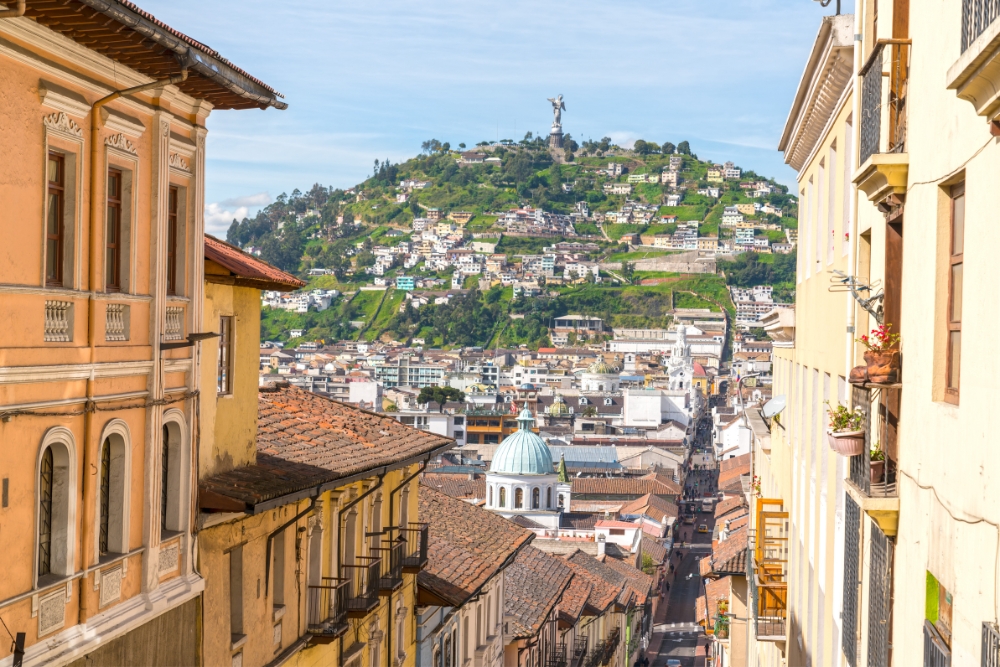
Immerse yourself in the rich cultural traditions of Quito, Ecuador by familiarizing yourself with the local customs and etiquette. When greeting someone in Quito, it is common to shake hands, although close friends and family may exchange hugs or kisses on the cheek. Eye contact is considered respectful and shows interest in the conversation. Ecuadorians are generally warm and friendly, so don’t be surprised if strangers greet you with a smile or engage in small talk.
When it comes to dress code and modesty, it is important to dress modestly and conservatively in Quito, especially when visiting religious sites or formal establishments. Women should avoid wearing revealing clothing, while men should stick to long pants and shirts with sleeves. Removing your shoes before entering someone’s home or a sacred place is also customary.
In addition, it is considered polite to address people using their titles and last names until you are invited to use their first name. Punctuality is highly valued in Quito, so arrive on time for appointments and meetings. It is also customary to bring a small gift when invited to someone’s home, such as flowers or a bottle of wine.
Conclusion
Overall, visiting Quito, Ecuador, can be an enriching and unforgettable experience. With its diverse climate, stunning landscapes, and rich cultural heritage, there is something for everyone to enjoy. However, it is important to be well-prepared before embarking on your journey. From understanding the local customs and etiquette to acclimatizing to the high altitude, these factors can greatly enhance your trip. So, before you set off on your adventure, do your research and be ready to embrace the beauty and charm of Quito. After all, as the saying goes, “The world is your oyster.”



